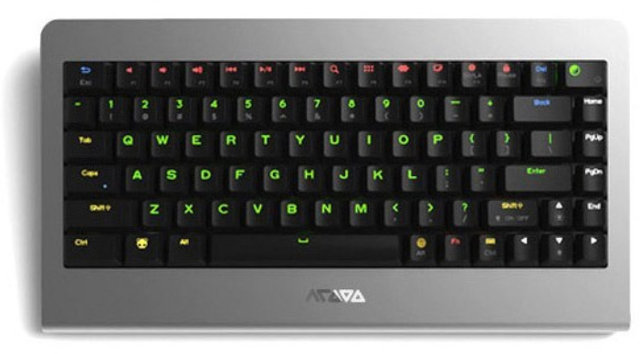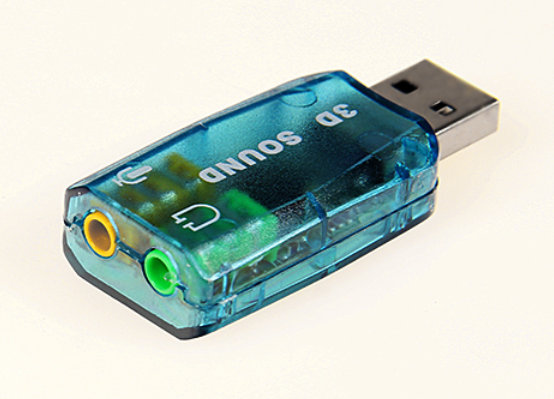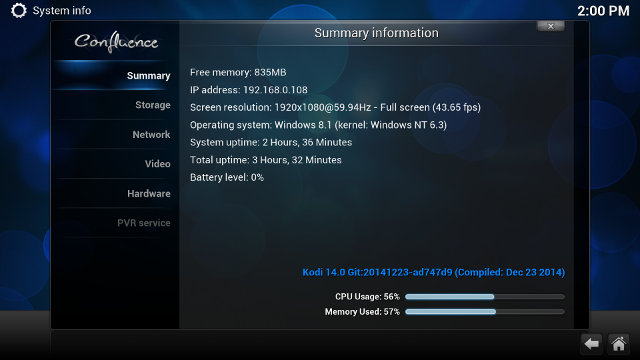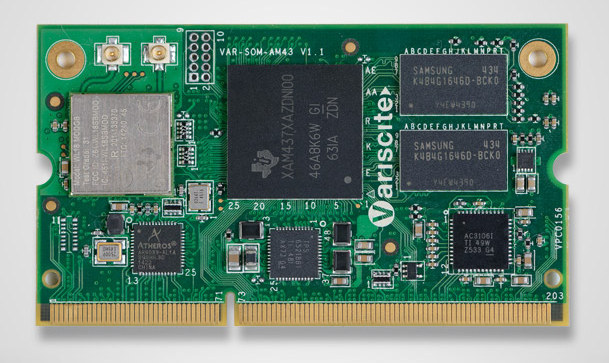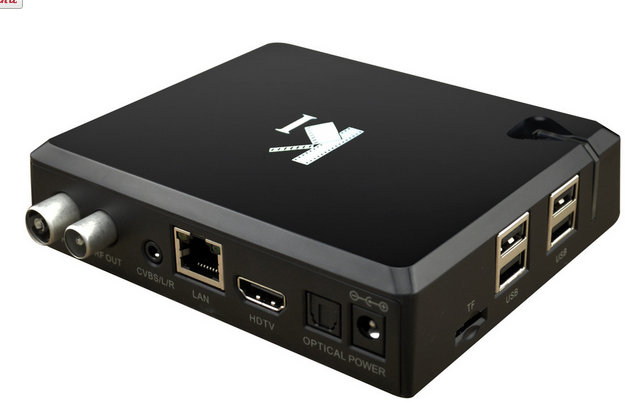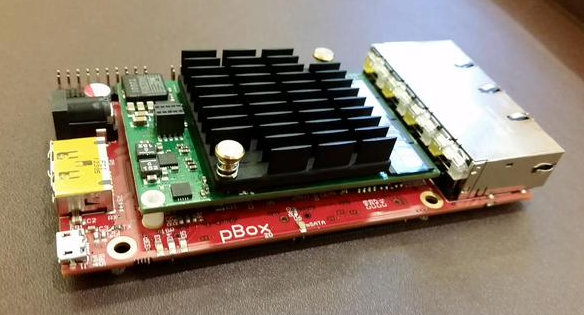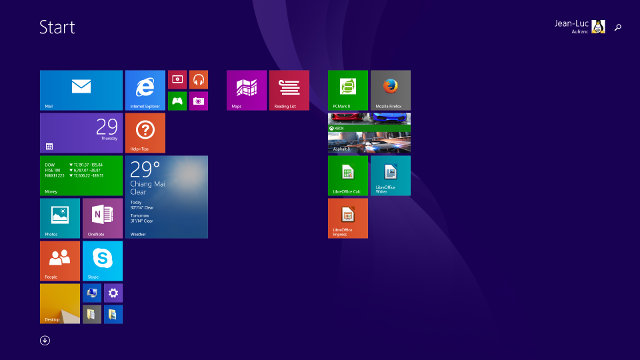When Coolship keyboard computer was announced in 2013, it caught the attention of some people, but unfortunately the crowdfunding campaign was a disaster despite reaching their funding target, and few people, if any, ever received the device. But if you are a nostalgic and still would like a Commodore C64-like computer in a keyboard, a company call Acooo has designed OneBoard PRO+ based on Rockchip RK3288 processor and with a backlit mechanical keyboard housed in an aluminum case. OneBoard PRO+ specifications: SoC – Rockchip RK3288 Quad Core Cortex A17 up to 1.8GHz with ARM Mali-T764 GPU supporting OpenGL ES1.1/2.0/3.0, Open VG1.1, OpenCL, DirectX11 System Memory – 2GB DDR3 Storage – 16 GB eMMC flash + SD card slot up to 32GB Keyboard – 83-keys QWERTY keyboard with backlit keys made of ABS plastic Video Output / Input – HDMI output, DVI input Audio Output / Input – HDMI, 3.5 mm […]
Connect Speakers to Any mini PCs with a $1 USB Sound Card
Last year, I made a poll to find out what kind of audio output people used with mini PCs, and one person commented “USB audio to av receiver”, but at the time I did not investigate. Recently somebody asked me for mini PCs with audio output for stereo speakers, and I recommended something like MINIX NEO X6 with a dedicated 3.5mm audio jack, but I’ve just discovered USB sound cards with stereo output and microphone input are incredibly cheap, even less than $1 shipped on Aliexpress, and just above $1 on Ebay. The features for the model above are listed as follows: Real USB Plug & Play Drive 2-channelsspeakers directly Support 3D positional sound and virtual 5.1 channels sound track Powered via USB port Digital Class-B power Amplifier inside Speaker Shifter – 5.1x earphone, 2 speaker virtual theater Software Value-added for Music: 27x Environmont Effects, 3x Environment sizes, 10-Band/Pre-set Equalizer […]
Kodi 14 Video Playback on Intel Atom Z3735F Computers Running Windows 8.1
I’ve already written a short review of Mele PCG03 mini PC powered by Intel Atom Z3735F processor, with 2GB RAM, and 32GB eMMC flash, where I found out that almost it’s not the fastest device around, it’s still usable for most tasks, albeit you can quickly run out of space with only 32GB storage, so if you really plan to use it as an actual computer using applications such as email clients, web browser and office suites, an external USB hard drive, or connection to a NAS is probably a must, or you’ll probably have to run Disk Cleaner fairly often. Mele PCG03 also have a valid Windows 8.1 license, and a VGA port, both of which are often missing on many other Bay Trail-T mini PCs. I’ve now installed Kodi 14.1 – downloaded directly from xbmc.org – on this low cost and low power computer, in order to go […]
Variscite Introduces TI Sitara AM437x SoM with Bluetooth and Wi-Fi
News about Texas Instruments Sitara AM437x processors first surfaced in 2012, before being officially announced last summer. Beside TI’s own development kits, I had not seen any hardware based on the company’s Cortex A9 industrial processor, but Variscite has now unveiled their VAR-SOM-AM43 systems-on-module (SoM) powered by AM4376 , AM4378, or AM4379 SoCs. VAR-SOM-AM43 specifications: SoC – Texas Instruments AM437x single core ARM Cortex A9 processor @ 1.0GHz: AM4376 – No GPU, 4x PRU @ 200 MHz AM4378 – PowerVR SGX530 GPU, 4x PRU @ 200 MHz AM4379 – PowerVR SGX530 GPU, 4x PRU @ 200 MHz, and EtherCAT slave support System Memory – 256MB to 1GB DDR3 Storage – 0 to 512MB SLC NAND flash, and 4GB to 32GB eMMC flash b module. 3x SD/MMC via edge connector Display Interfaces – 24-bit RGB interface up to 1400×1050 resolution; 4/5-wire resistive touch support Connectivity – 10/100/1000 Mbps Ethernet PHY + […]
Linaro 15.01 Release with Linux 3.19 and Android 5.0
Linaro has just announced the first release of the year with Linux 3.19-rc3 (baseline), Linux 3.10.65 and 3.14.29 (LSK), Android 5.0.2, and Ubuntu Linaro Utopic. Changes seem to have focused on ARM, Qualcomm, and HiSilicon hardware platforms such as Juno, and IFC6410, and some work has been done on Debian ARM64 rootfs. Here are the highlights of this release: Linux Linaro 3.19-rc5-2015.01 GATOR topic updated to version 5.20.1 builddeb topic: fixes for the dtb files location changes in 3.19 (vendor subdir introduced) updated integration-linaro-vexpress64 topic by ARM LT (FVP Base and Foundation models, and Juno support) updated topic from Qualcomm LT (IFC6410 board support) updated topic from HiSilicon LT (Hi36xx, HiP04, and X5HD2 families support) updated LLVM topic (uses the community llvmlinux-latest branch) Included ILP32 patch set v3 rebased on 3.19-rc5. Initial tests using syscalls LTP tests are done: msgctl07 stalls when using ILP32 userland (no stall with LP64 userland). […]
Videostrong K1 is a Quad Core Android TV Box with a DVB-T2 Tuner
There are several Android media player with a digital TV tuner on the market, such as WeTek Play, but most, if not all, are based on Amlogic AML8726-MX dual core Cortex A9 processor, and so far, I have not seen quad core Android TV boxes with a built-in tuner. This is about to change thanks to Videostrong K1 an Android 4.4 media player powered by Amlogic S805 quad core processor, and an optional DVB-T2 tuner. K1 OTT TV Box specifications: SoC – Amlogic S805 quad core Cortex A5 processor @ 1.5GHz with a quad core Mali-450MP2 GPU System Memory – 1GB DDR3 (512MB, 2GB as option) Storage – 4 or 8 GB NAND flash (Options: 16 or 32GB), micro SD card slot Video Output – HDMI 1.4, AV (Composite and YPbPr supported) Audio Output – HDMI, AV, and optical S/PDIF Tuners – DVB-T2 Tuner with RF In and Out Connectivity […]
Online Labs pBox (C1 Node) is a mini ARM Server with 4 Gigabit Ethernet Ports, mSATA and mPCIe Slots
Online Labs, a subsidiary of Iliad (free), recently launched hosting services with dedicated ARM servers based on Marvell processor with modules they call C1. The company has decided to design a baseboard (pBox) for C1 module, and, as I understand it, plans to sell it to the public. It’s an exciting development for those who are looking for affordable and tiny purpose built Linux ARM servers. Preliminary C1 Node / pBox mini server specifications (based on C1 specs and bits of information gathered online): SoC – Marvell Armada 370/XP quad core ARMv7 processor @ up to 1.2 GHz System Memory – 2GB RAM Storage – 256 MB NAND flash + mSATA slot + eSATA port + micro SD slot Connectivity – 4x Gigabit Ethernet ports USB – 1x micro USB port Expansion – mini PCie, 1x 20-pin header for expansion (no details yet) Debugging – 20-pin JTAG connector Power Supply […]
MeLE PCG03 mini PC Review and Benchmarks with Windows 8.1 with Bing
MeLE PCG03 is an Intel Atom Z3735F mini PC with 2GB RAM, and 32GB eMMC. I’ve already posted some pictures of the device and board, and since Windows 8.1 with Bing NTE (with proper license) is installed, I’ll first test the device with Microsoft OS as a reference, before trying Ubuntu or/and Android. MeLE PCG03 Setup The computer comes only with a power adapter, so you’ll need to find an HDMI or/and VGA cable for your display(s), and a USB keyboard and mouse to get started. Optionally, you’ll also want an Ethernet cable, and since storage is limited an extra storage device be it a USB hard drive, flash drive, or SD card. Once all is connected you can press the power button on the left side to boot the device. The boot normally takes about 20 seconds, but the first time, you’ll go through the usual Windows 8.1 setup […]


